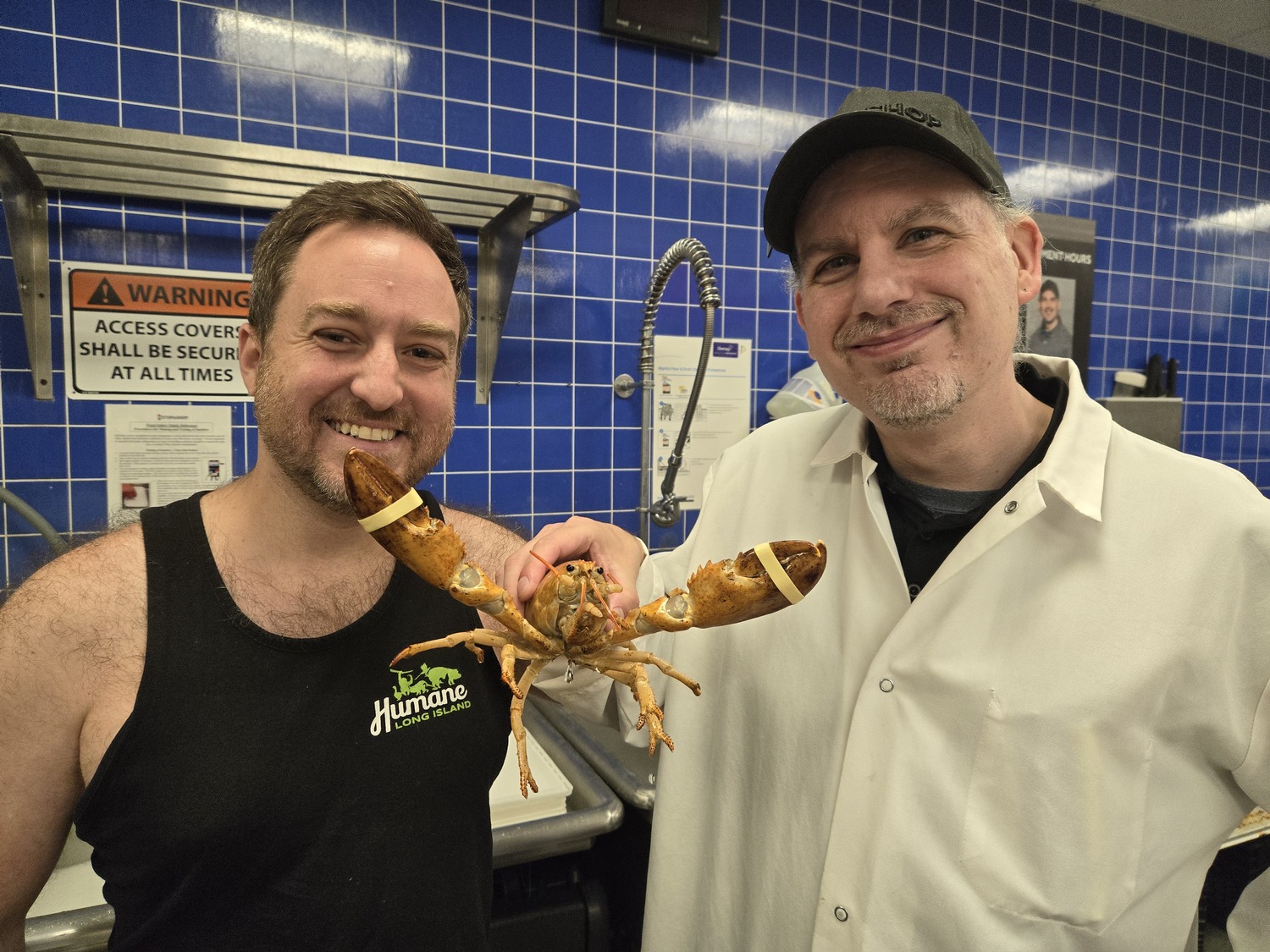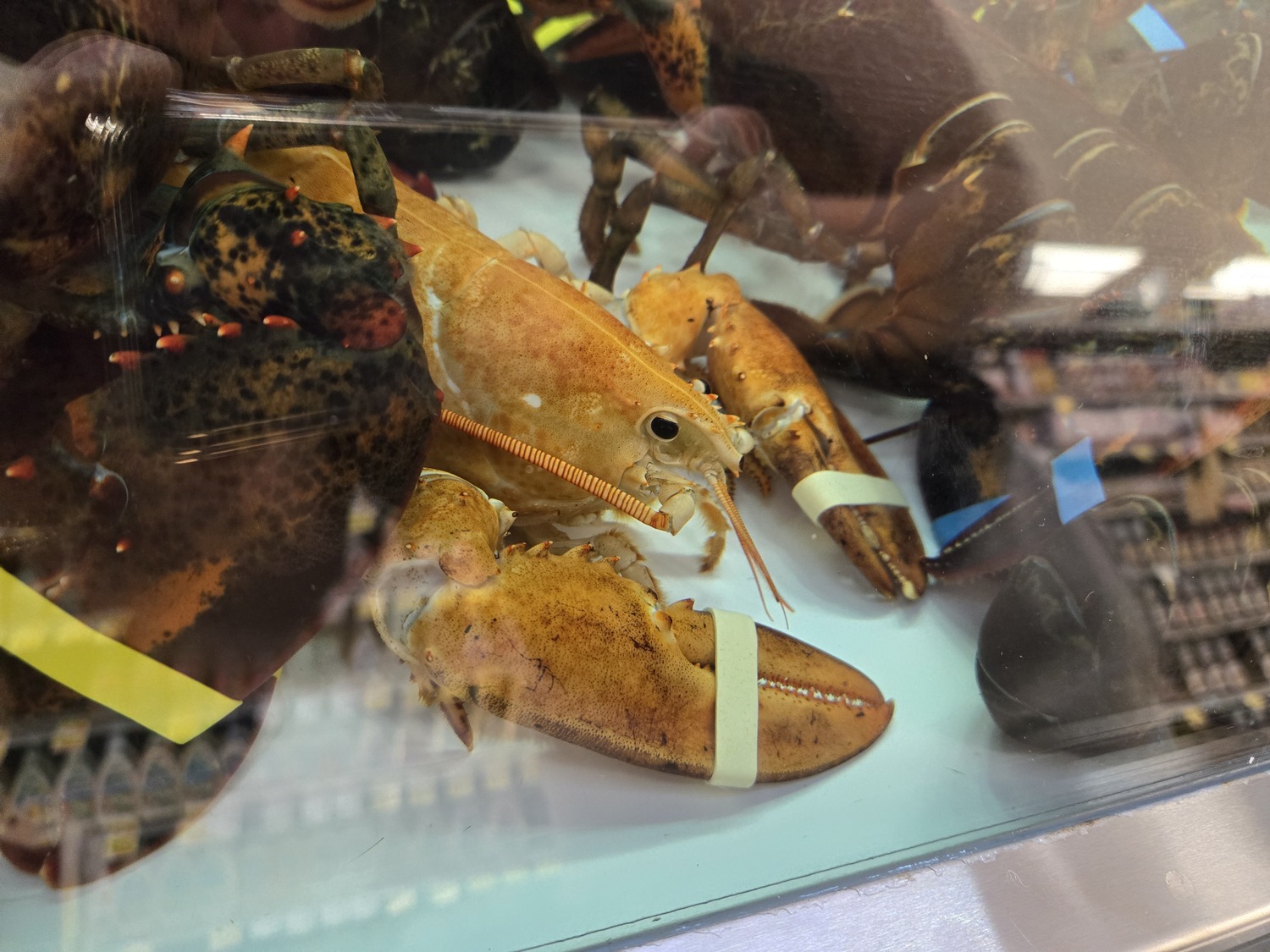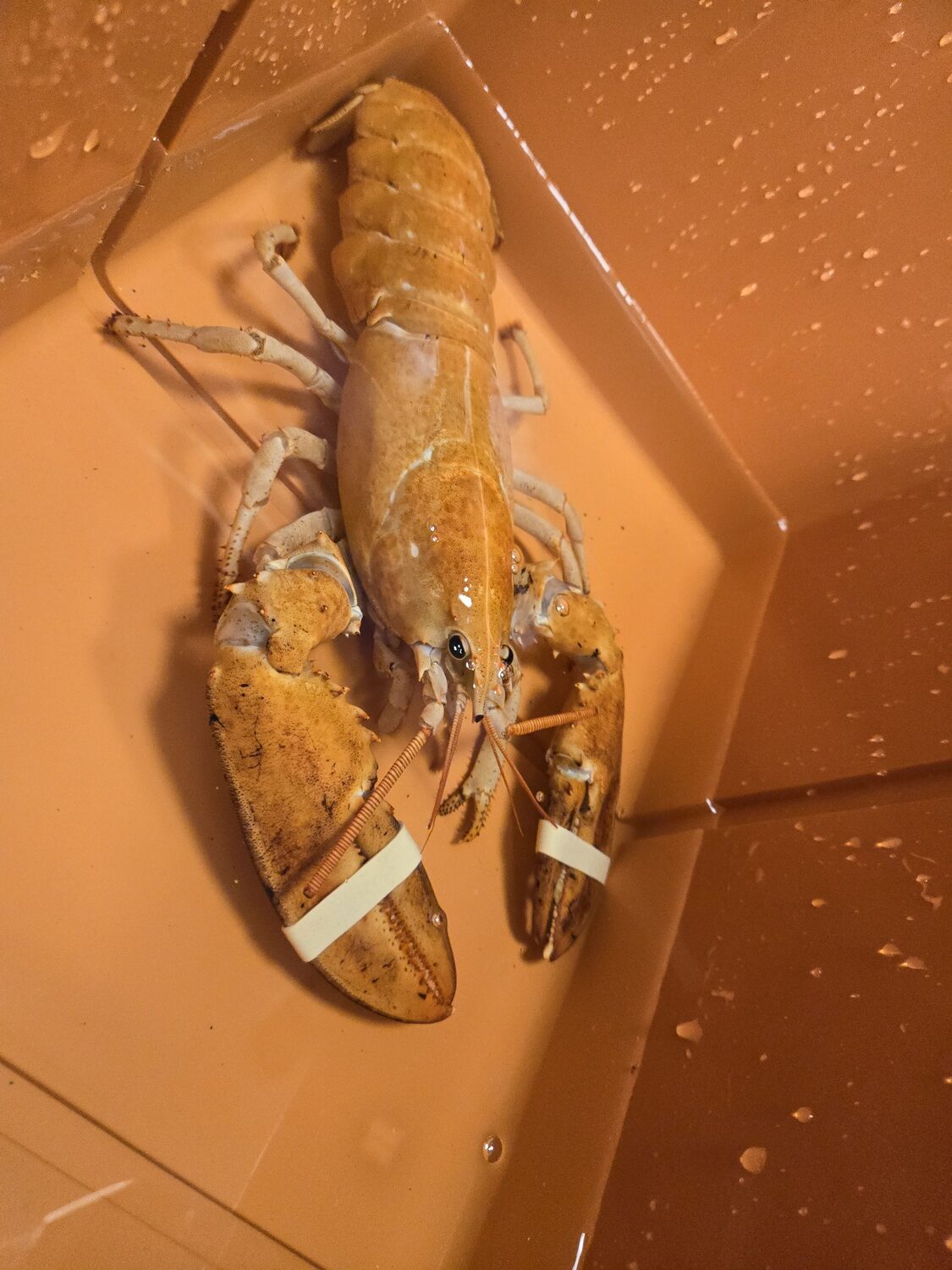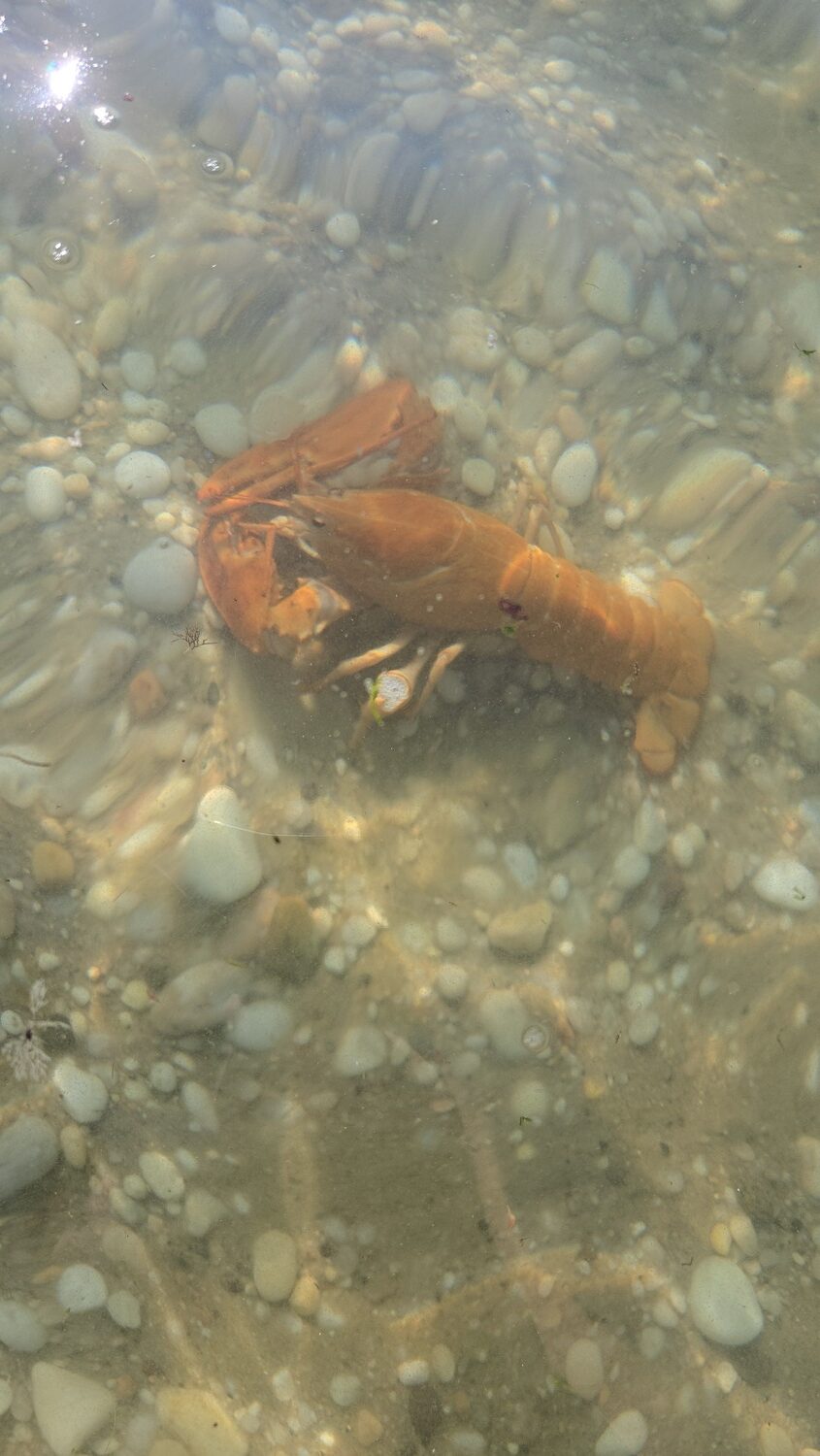
Humane Long Island picked up the orange lobster from the Stop & Shop seafood department by John DiLeonardo, the groups president.
The orange lobster is a genetic mutation that occurs in 1 out of 30 million individuals of the species. COURTESY HUMANE LONG ISLAND
Its rescuers acclimated the lobster to the temperature of open water before releasing it. COURTESY HUMANE LONG ISLAND
Clementine, as Humane Long Island nicknamed the lobster, was set free into Long Island Sound.

Humane Long Island picked up the orange lobster from the Stop & Shop seafood department by John DiLeonardo, the groups president.

The orange lobster is a genetic mutation that occurs in 1 out of 30 million individuals of the species. COURTESY HUMANE LONG ISLAND

Its rescuers acclimated the lobster to the temperature of open water before releasing it. COURTESY HUMANE LONG ISLAND

Clementine, as Humane Long Island nicknamed the lobster, was set free into Long Island Sound.
We're happy you are enjoying our content. You've read 4 of your 7 free articles this month. Please log in or create an account to continue reading.
Login / Create AccountWe're happy you are enjoying our content. Please subscribe to continue reading.
Subscribe Already a Subscriber



 Michael Wright on Sep 4, 2024
Michael Wright on Sep 4, 2024